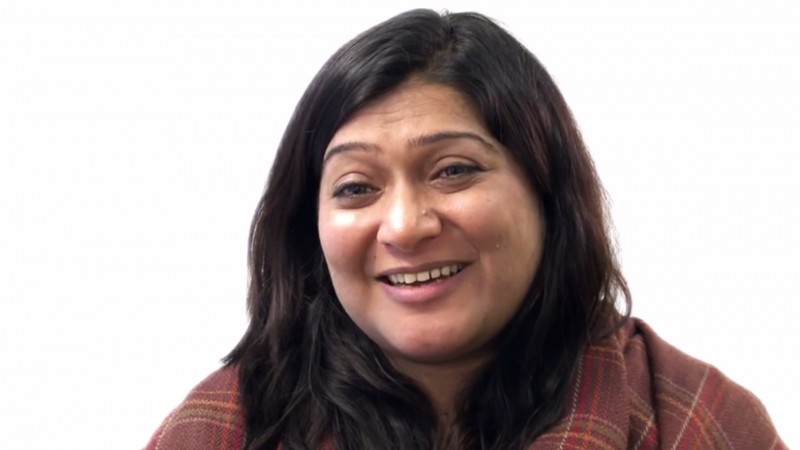
Screenshot of Night Dad speaking about what privacy means to people. Click on the image to watch the video via Privacy International
Nighat Dad, a Pakistani digital rights activist and lawyer, has been added to the list of TIME's Next Generation Leaders along with five others for her struggle to protect women from online harassment and to spread awareness regarding digital rights.
TIME's Next Generation Leaders programme aims to promote the struggle of inspiring youth leaders. It enables leaders to elevate their struggle to the international level. It has give recognition to many leaders and highlighted many important issues.
Nighat Dad has been working to raise awareness about digital rights and online privacy, targeting human rights defenders and women, for about a decade. In 2012 she formed the Digital Rights Foundation Pakistan (DRF), a non-profit organisation that educates and trains people — especially young women — about privacy and security online, and how to tackle online harassment.
The organisation not only campaigns against online harassment, but also against laws that allow the government to carry out internet surveillance which intrudes on the basic right to privacy.
Her achievement was applauded across Pakistan, helping in turn to spread her cause.
Investigative journalist for the The News Umar Cheema tweeted:
Congrats to @nighatdad who's among 6 individuals named Next Generation Leaders by Time Magazine. #Pakistan proud of u http://t.co/gKgR7yeZ9A
— Umar Cheema (@UmarCheema1) June 2, 2015
Writer and activist Sheheryar Naqvi tweeted:
Proud moment. Congratulations @nighatdad pic.twitter.com/LrWP9Ry0Mi — Sheheryar Naqvi (@SheheryarNaqvi) May 31, 2015
Nighat Dad talked with Global Voices about her struggle and achievements.
Global Voices (GV): You have been nominated as TIME's Next Generation Leader. How does it feel to be a leader?
Nighat Dad (ND): It's a huge responsibility, actually. Even before this nomination, I have been working for this cause on the ground, but now as people look up to me I have to be careful in whatever I do. As a leader, you have to envision a future you believe in, and that is what I am doing. People have standards, so I have to remain careful in my actions.
GV: Being recognised at the international level for fighting for a global cause as a Pakistani woman, how do you feel?
ND: The cause I am working for was difficult from the start as we live in a patriarchal community. I was a single mother, and was working for digital rights of women without any support from stakeholders and peers. So achieving this despite all the difficulties, feels great.
GV: Do you think this recognition will spur you on to help you achieve your goal?
ND: Yes, absolutely! Awareness is the first step to bring change, and I am spreading awareness. We have been working on different issues, and lobbying the government on the Cyber Crime Bill. So, through this recognition these issues will be highlighted
GV: Apart from this recognition, do you think you have been successful in protecting women from online harassment, given that women still face this issue in Pakistan?
ND: Exactly, the issue of online harassment is increasing day by day with the advancement of internet use and facilities. We have initiated the campaign but I have been unable to protect women so far. We are raising awareness in different institutions; colleges and bar councils. There is a long way to go, and we are struggling for it. We will achieve the goal.
GV: You have proven yourself an inspiration to Pakistani youth. What is your message for them?
ND: As I look at myself and my struggle, I see many difficulties I faced. Being a single mother and working for this cause, I didn't get support. Anyway, I kept on speaking about the issue. I was consistent and strong. So, if youth is speaking for a cause, they have the ability to bring change. They only have to be consistent.
GV: Finally, as someone that has contributed to Global Voices Advox in the past, how do you think GV can be more effective in discussing people's digital rights?
ND: I think Global Voices is playing a huge role in discussing people's digital rights as well as the rights of activists. It is doing its best in terms of raising awareness, however it can be more effective by highlighting the work of people working on ground.




1 comment